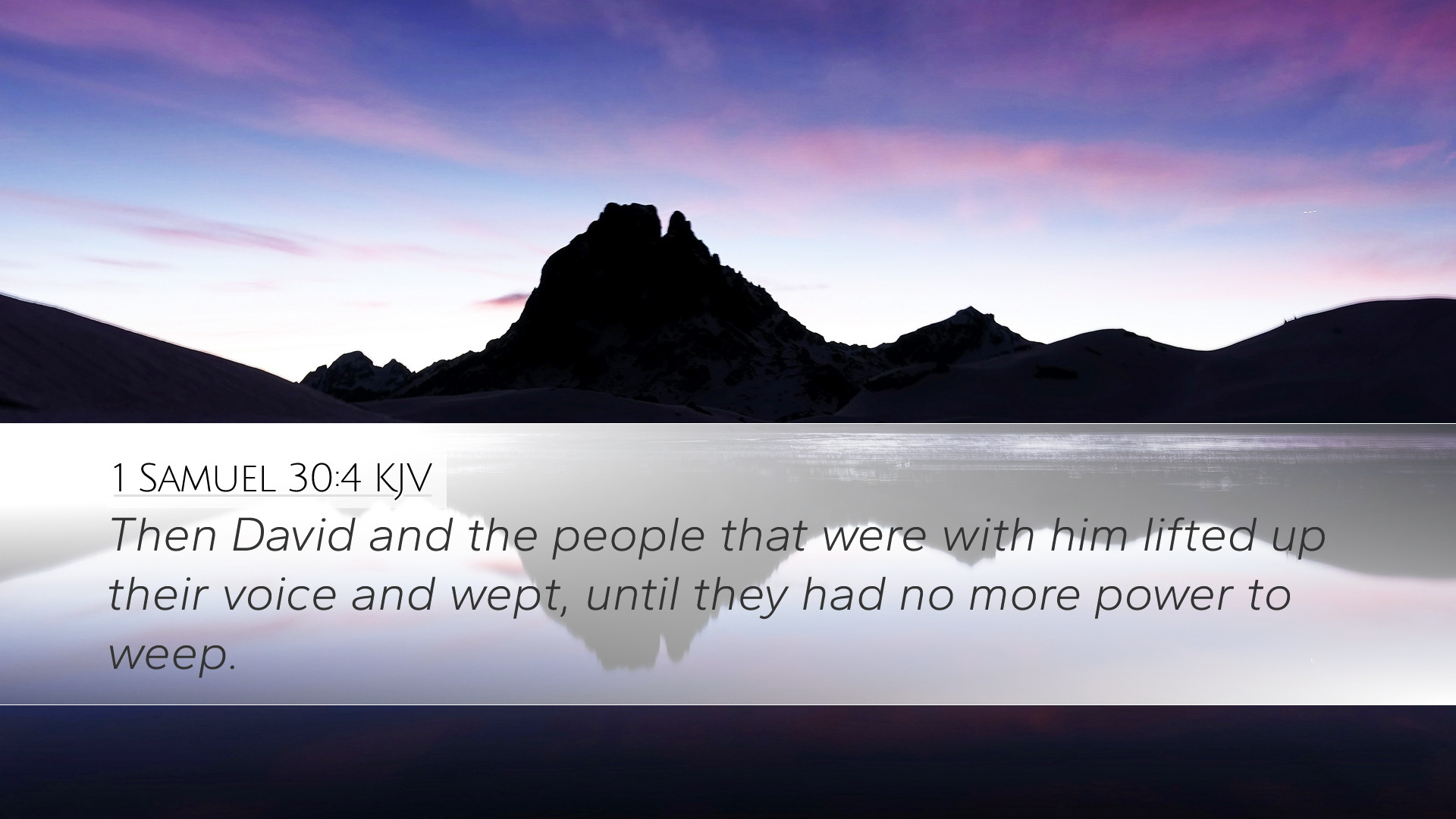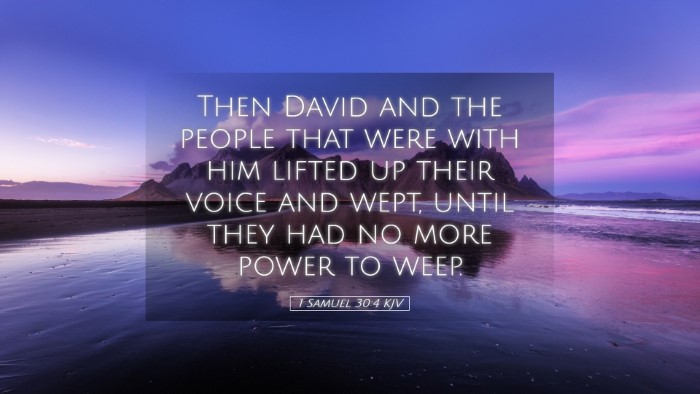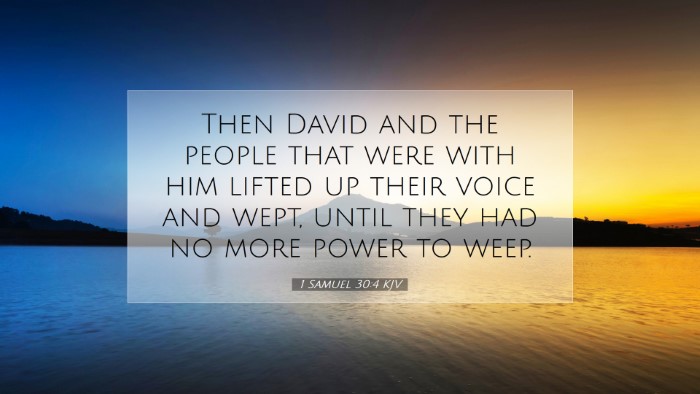Commentary on 1 Samuel 30:4
Bible Verse: "Then David and the people that were with him lifted up their voice and wept until they had no more power to weep."
Introduction
This verse captures a profound moment of distress experienced by David and his men. Having returned to Ziklag to find their city burned and their families taken captive, they faced overwhelming grief. This commentary aims to unpack the implications of their sorrow and the theology encapsulated within their response.
Contextual Background
The events leading up to this verse are critical for understanding its significance. David, having been pursued by Saul, sought refuge among the Philistines. When he and his men returned to Ziklag, they found it devastated. Their families were gone, and the loss overwhelmed them.
The Emotional Weight of Grief
David's Distress: David's reaction mirrors a natural human response to loss. The phrase "lifted up their voice and wept" indicates a deep, communal lament. Matthew Henry notes that their weeping was "sorrowful and loud," reflecting the agony of lost loved ones and the destruction of their homes.
The Power of Collective Grief: The grieving process is often communal. Albert Barnes emphasizes the significance of their solidarity in sorrow. In this moment, the men of David shared not only their physical loss but also an emotional bond, illustrating how grief can unite individuals facing despair together.
Exhaustion of Emotion: The phrase "until they had no more power to weep" suggests total emotional depletion. Adam Clarke notes this as indicative of their intense anguish, similar to the deep despair found in Job's lamentation, where words fail and only tears remain. In their grieving, the men encountered their limitations as human beings, unable to cope with their reality.
Theological Insights
Understanding Suffering: This verse invites reflection on the divine purpose in human suffering. Suffering often serves as a crucible for growth and strength. The grief of David and his men is not just a narrative of loss; it prepares the ground for an eventual restoration. Matthew Henry notes that trials often precede triumph, asserting that hope can arise from despair.
God's Presence in Grief: It is important to note that while grief is portrayed here, God’s presence in the midst of trials is a recurring theme in scripture. David will soon seek divine guidance, emphasizing that even in sorrow, we can turn to God for direction and support. Albert Barnes interprets this seeking of God as a turning point, where despair becomes a set-up for recovery.
Application for Today
This verse has profound implications for pastors and theologians today:
- Emotional Honesty: It encourages an honest engagement with emotions. Pastors should model a ministry environment where grief and sorrow are acknowledged and processed within the context of faith.
- Community Support: The communal aspect of their weeping highlights the need for community in moments of crisis. It serves as a reminder that shared burdens can alleviate individual pain.
- Faith Amidst Grief: Like David, believers are called to seek God in their distress. The practice of prayer and seeking divine guidance should be emphasized as essential elements in the aftermath of loss.
- The Promise of Restoration: There is hope inherent in this narrative arc. The eventual recovery and restoration of David's family serves as a theological anchor, reminding us that God can bring beauty from ashes (Isaiah 61:3).
Conclusion
1 Samuel 30:4 encapsulates a moment of ultimate vulnerability and despair. Yet it is also rich with the promise that God meets us in our sorrow, shaping our spirits in the crucible of grief. As David's story unfolds, we find a powerful narrative of restoration that both challenges and equips us in our ministry. For every believer, this passage encourages an authentic journey of faith, where grief does not have the last word, but rather becomes the precursor to divine intervention and healing.


